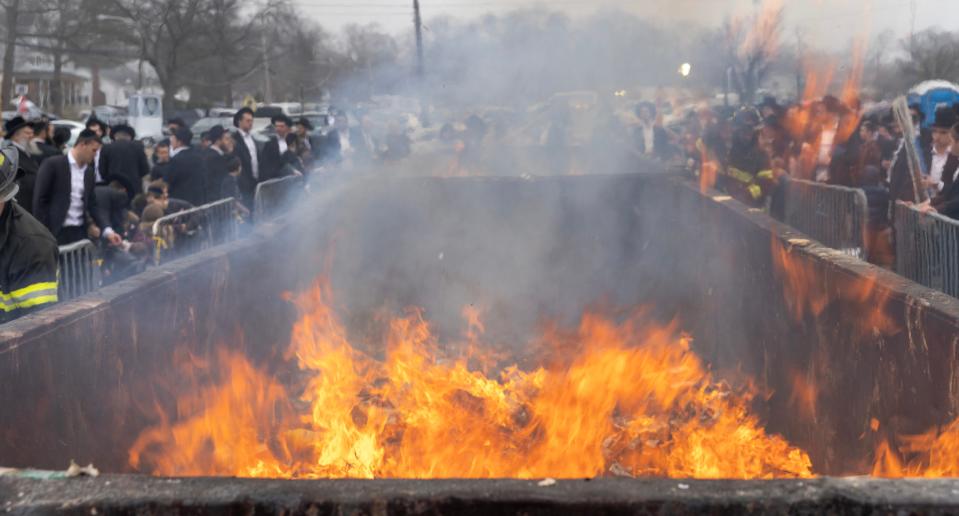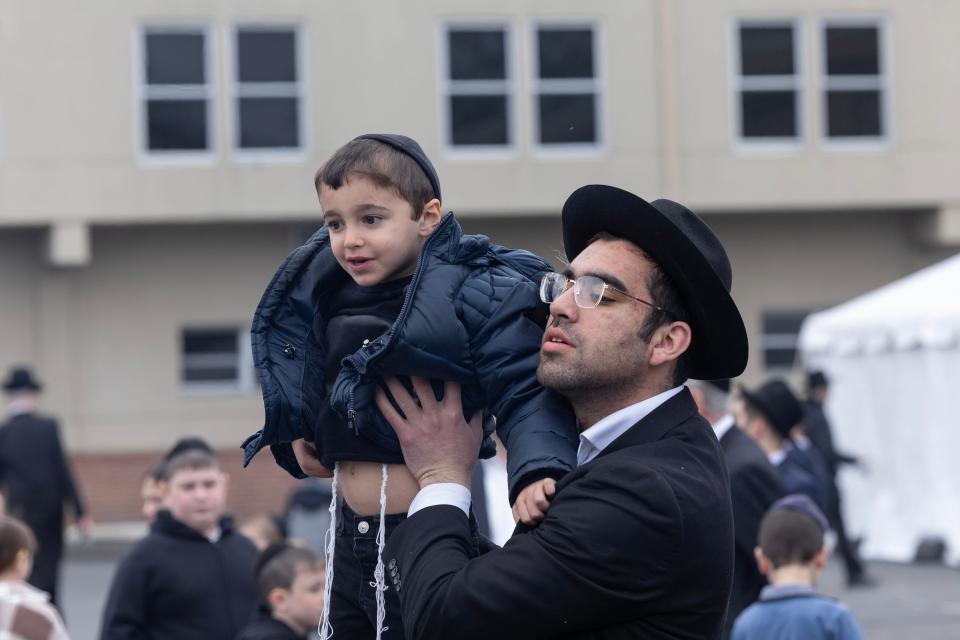Before Passover, Lakewood joins others around NJ in tradition of burning chametz
Every year, Jewish families throughout the world get rid of food items in their kitchens that are banned by the Torah during the holiday week of Passover, which this year starts at sunset on April 5 and runs through April 13. But before the holiday starts, comes the burning of chametz, which is leavened bread and other banned items.
See the video above to see what is done before the start of Passover.The holiday week celebrates the liberation of Jewish people from slavery in ancient Egypt over 3,000 years ago. Back then, Jewish people escaped in such a haste that there was no time to leaven the bread, said Moshe New, writer at Chabad.org. In commemoration of the historical event, Jewish families don’t eat or keep leavened products derived from wheat, spelt, barley, oats and rye. That means no bread, no pasta, no tortillas, cookies or any other product that can be leavened, New said.

Before the bread burning, Jewish homes undergo a meticulous cleaning to make sure that there are no bread crumbs or small pieces of non-kosher for Passover products hidden anywhere. Some homes use a fire torch on surfaces around the kitchen as an added measure to keep the kitchen kosher for Passover, New said.
Traditions: What is chametz and why is North Jersey burning it? Your guide to Passover traditions
If people have doubts if any of their food items are kosher for Passover, they can check the online search bar on the U.S. Orthodox Union website.

As done in previous years, Lakewood’s Department of Public Works arranged eight contained sites around the township for the burning on Wednesday. The local fire department supervised the fires.
Juan Carlos Castillo is a reporter covering everything Lakewood. He delves into politics, social issues and human-interest stories. Reach out to him at [email protected]
This article originally appeared on Asbury Park Press: Lakewood NJ starts of Passover with burning of chametz
